May 10, 2023
What Is Cognitive Automation?
Cognitive automation refers to the use of advanced technologies such as artificial intelligence, machine learning, natural language processing, and robotics to automate routine tasks, analyse data, and provide real-time insights.
Combining the best of AI and automation to mimic human intelligence with the processing power of machines it’s helping organizations streamline and scale operations like never before. Research has shown that cognitive automation leaders operate up to 5-15% higher margins than their peers.
If you’re still wondering what is cognitive automation? Don’t worry. Below, we’ll fill you in on everything you need to know regarding this nascent but revolutionising technology.
Components of Cognitive Automation
Modern-day cognitive automation systems rely on various components that work in unison to unlock their full potential:
Artificial Intelligence (AI) and Machine Learning (ML)
AI refers to machines that can perform tasks normally requiring human intelligence, such as recognising objects and making decisions.
Machine learning is a subset of AI that focuses on developing algorithms that can learn from data and improve performance over time.
Combined, AI and ML are critical in enabling machines to learn from experience to improve decision-making.
Natural Language Processing (NLP)
NLP is a branch of AI that focuses on enabling machines to understand, interpret, and generate human language.
In cognitive automation, NLP enhances machines’ ability to understand and respond to natural language inputs. For example, chatbots use NLP to understand customer queries and respond with relevant information.
NLP can also be used to extract insights from unstructured data, such as customer feedback or social media posts. This enables businesses to gain a deeper understanding of customer sentiment.
Robotic Process Automation (RPA)
RPA is a technology that automates repetitive tasks, such as data entry or generating reports. RPA software can mimic human interactions with digital systems, enabling them to perform tasks quickly and accurately.
In cognitive process automation, RPA can be used to automate tasks that normally require human action, such as data analysis or decision-making. For example, RPA bots can automate the processing of loan applications, where they can analyse financial data and make decisions based on predefined rules.
Applications of Cognitive Automation
Due to rapid advancements and its adaptability, cognitive automation is becoming ubiquitous across all business sectors. Here are some cognitive automation examples of how you can leverage it for your business:
Customer service and support
Cognitive automation can improve customer service and support by enhancing response times and personalisation. For example, chatbots with natural language processing capabilities can engage with customers in real time, answering queries and providing personalised recommendations.
Cognitive automation can also analyse customer data, enabling organisations to gain insights into customer behaviour and preferences so businesses can deliver personalised experiences at scale.
Data analysis and decision-making:
Cognitive automation leverages machine learning and other AI techniques to extract insights from large data sets to enhance or perform data-driven decision-making.
For example, cognitive automation can analyse sales data and identify patterns and trends, enabling organisations to optimise pricing and product offerings.
Businesses can also use it for predictive modelling to forecast future trends and make proactive decisions.
Compliance and risk management:
Cognitive automation can streamline compliance and risk management processes by automating routine tasks and ensuring regulatory adherence. For example, businesses can use it to monitor financial transactions and identify potential fraud, enabling companies to take proactive measures to mitigate risk. Cognitive automation can also be used to automate compliance reporting, ensuring that businesses comply with regulatory requirements.
Supply chain management
Cognitive automation can improve efficiency and accuracy in supply chain operations by automating routine tasks and providing real-time insights into supply chain performance. For example, cognitive automation can optimise inventory levels and manage logistics, enabling businesses to reduce costs and improve delivery times. It can also be deployed for real-time, 24/7 supply chain monitoring, enabling any business to identify and address issues quickly.
A Real-World Example: Cognitive Automation in Banking
To illustrate the practical applications of cognitive automation, let’s explore how the banking sector could implement this technology. The aim would be to streamline processes, enhance decision-making, and improve customer experience. The three most significant aspects to consider are the following:
Transformative Outcomes:
By integrating cognitive automation into industry-wide operations, banking can achieve the following outcomes, which will enhance various aspects of the industry:
- Automating loan application processing using RPA bots
- Analysing customer feedback using NLP
- Predicting customer credit risk using machine learning
- Enhancing customer support with AI chatbots
The Significant Benefits
Implementing cognitive automation in the banking sector brings numerous advantages, positively impacting efficiency, cost savings, decision-making, and customer satisfaction:
- Increased efficiency and productivity: Employees can focus on high-value tasks like relationship building, while cognitive automation handles repetitive tasks like loan processing.
- Cost savings and resource optimisation: Banks can save on labour costs, as they require fewer employees to perform routine daily tasks.
- Improved decision-making and reduced human errors: Analysing customer data and predicting credit risks with cognitive automation minimises human errors and biases.
- Enhanced customer experience: AI chatbots can respond to customer queries in real-time, improving customer satisfaction.
The Potential Challenges and Concerns
Despite the numerous benefits, banks should be aware of potential challenges and concerns that may arise during the implementation of cognitive automation. These issues must be carefully considered and addressed to ensure successful integration:
- Implementation cost: Integrating cognitive automation into existing systems may be initially expensive.
- Data privacy and security concerns: Handling sensitive customer data may raise privacy and security concerns that must be addressed.
- Technological unemployment: Automation may lead to job losses for some employees, particularly for those who perform routine tasks.
- Adoption challenges: Employees will require training and time to adapt to the implementation of new technologies.
By considering both the benefits and issues of implementing cognitive automation, banks can make informed decisions on how to leverage this technology best to optimise their operations and gain a competitive edge.
Overall Benefits of Cognitive Automation
- Increased efficiency and productivity: Cognitive automation can automate routine tasks, freeing up employees to focus on higher-value tasks. This can lead to increased efficiency and productivity, as well as faster turnaround times for projects and tasks.
- Cost savings and resource optimisation: Similarly, cognitive automation reduces the need for manual labour and resources, resulting in cost savings and resource optimisation. Redeploying employees to higher-value tasks can also lead to further cost savings and improved resource utilisation.
- Improved decision-making and reduced human errors: Cognitive automation can analyse large volumes of data and provide real-time insights. This leads to better data-driven decision-making and reduced risk of human errors caused by bias or fatigue.
- Enhanced customer experience: Cognitive automation can enable personalised interactions and faster response times, leading to a better customer experience. Chatbots equipped with natural language processing capabilities can engage with customers in real-time, so they won’t have to wait for busy support agents.
Conclusion
Cognitive automation is increasingly important in today’s business landscape as companies seek to optimise their operations and gain a competitive edge. By automating routine tasks, analysing data, and providing real-time insights, cognitive AI can increase efficiency, reduce errors, and enhance the customer experience. Embracing cognitive automation early can help any business stay ahead of the curve.
If you want to learn more about how Innovo can help you to leverage Cognitive Automation to improve efficiency and reduce costs in your organisation, contact us today.


